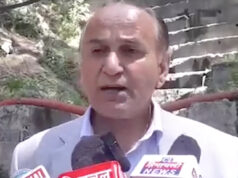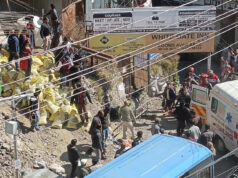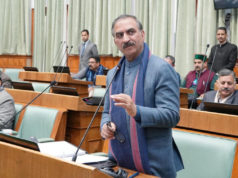Set against the backdrop of Shimla’s idyllic hills and charming landscapes, a silent menace is gripping the city’s educational fabric. The unbridled proliferation of “dummy classes” has surreptitiously invaded the serene educational realm of Shimla, tarnishing its reputation as an academic haven. These shadowy institutions, claiming to offer a shortcut to success, are sowing the seeds of educational deceit in the very heart of this picturesque city.
In the lap of nature’s grandeur, unsuspecting students are being enrolled in remote schools located in distant corners like Rampur, Rohru and some in Shimla city as well, only to funnel into private coaching institutions within Shimla itself. The flexibility touted by these dummy classes, allowing students to skip regular school attendance, is not a symbol of educational liberation but a dark stratagem undermining the sanctity of genuine learning.
As coaching institutes in Shimla and neighbouring cities such as Ghumarwin, Hamirpur, Kangra, Solan and others, brazenly propagate this detrimental trend, the need for immediate intervention becomes glaringly apparent.
What Are Dummy Classes/School?
Dummy Classes/Schools mimic regular educational institutions, primarily catering to NEET and JEE aspirants. These establishments offer a flexible attendance system, allowing students to skip regular school days and focus more on entrance exam preparation. However, the exorbitant fees charged by these dummy schools and their impact on the overall development of students have caught the attention of educational authorities.
The Central Board of Secondary Education (CBSE) has rightly recognized dummy schools as hindrances to students’ holistic development. In response, the board has initiated measures to crack down on these institutions. The latest regulations target coaching centers enrolling students under the age of 16, aiming to curtail the growth of dummy schools.
Parents’ Pressure and the Coaching Center Boom
The mushrooming of coaching centers is largely driven by parental demand for quality education. The aspiration for a secure and prosperous future through prestigious institutions has created a thriving market for coaching centers. However, this demand has inadvertently fueled the rise of dummy schools, putting additional strain on students and parents alike.
Parents, lured by the promise of success, often take loans to afford these coaching classes. The resulting financial burden adds pressure on students to excel in exams, creating a vicious cycle of stress and competition.
Unfair Competition: The Silent Killer of Meritocracy
The prevalence of dummy schools is fostering unfair competition among students. Those enrolled in such institutions often benefit from domicile advantages, leading to disparities in the competition. This not only undermines the essence of fair competition but also poses a challenge to the education system.
If parents lose trust in conventional schools and turn to dummy schools for board exam success, it reflects a deep-rooted flaw in the traditional education system. It is imperative to address this issue promptly to prevent the further expansion of private coaching centers.
CBSE’s Crackdown and Chandigarh’s Action Plan
The CBSE is gearing up to take a strong stance against dummy schools. By implementing online attendance monitoring and responding to complaints, the board aims to root out this practice. Meanwhile, the Chandigarh UT education department is formulating stringent instructions to enforce CBSE guidelines and curb the flouting of minimum attendance standards.
A Call to the Himachal Pradesh Government: Introduce Stringent Rules
In the wake of this educational crisis, the Himachal Pradesh government must recognize the severity of the issue and take decisive action. Stringent rules and regulations should be introduced to curb the unchecked growth of dummy classes. The government must collaborate with educational authorities, parents, and concerned citizens to develop a comprehensive strategy that safeguards the integrity of our education system. By addressing this menace head-on, the Himachal Pradesh government can ensure that the future of its students is not compromised by the deceptive allure of dummy classes, ultimately securing a brighter tomorrow for the state.
The battle against dummy classes requires a collective effort from educational authorities, parents, and society at large. Only by prioritizing the quality of education over shortcuts and unfair practices can we safeguard the future of our students and the integrity of our education system.













